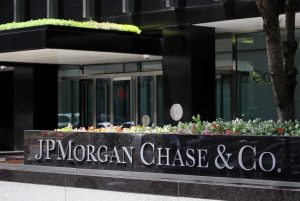Robinhood Markets Inc. introduced tokenized U.S. equities at its Robinhood Presents: To Catch a Token event in Cannes, expanding its crypto platform to over 400 million users across 30 EU and EEA countries. The launch, which leverages blockchain to offer digital versions of stocks and ETFs, highlights tokenization’s potential to streamline and democratize global markets. For a broker that halted GameStop Corp. (GME) trading in 2021 amid a short-squeeze frenzy, the move to a technology that could prevent such market distortions is a notable pivot.
Tokenized Equities: A New Frontier
Robinhood’s tokenized equities enable eligible EU customers to invest in U.S. stocks and ETFs through blockchain-based tokens, offering commission-free trading, dividend payments, and 24/5 access. Over 200 tokenized assets are available, initially issued on the Arbitrum blockchain, with plans for a proprietary Robinhood Layer 2 blockchain optimized for 24/7 trading and self-custody.
“Our latest offerings lay the groundwork for crypto to become the backbone of the global financial system,” said Vlad Tenev, Robinhood’s chairman and CEO, during the Cannes event.
Tokenization uses blockchain’s transparent ledger to represent assets digitally, ensuring every share is uniquely tracked. This could eliminate issues like settlement delays and overshorting, where more shares are sold short than exist. The technology promises faster, more accessible markets, aligning with industry trends toward blockchain adoption.
“Crypto was built by engineers for engineers, and has not been accessible to most people,” said Johann Kerbrat, general manager and SVP of Robinhood Crypto. “We’re onboarding the world to crypto by making it as easy to use as possible—with the goal of bringing powerful tools into one intuitive platform.”
The Irony of Robinhood’s Stock Tokenization
Robinhood’s tokenized equities carry a layer of irony given its past. In January 2021, the broker restricted buy orders for GameStop and other “meme stocks” during a retail-driven short squeeze that exposed naked shorting. Short interest in GME exceeded 140% of the float, per Bloomberg data, as hedge funds like Melvin Capital faced massive losses. Robinhood’s trading halt, attributed to clearinghouse margin requirements, drew retail backlash and regulatory scrutiny but no finding of wrongdoing.
Blockchain’s transparency could prevent such overshorting. Tokenized equities ensure only existing shares can be traded or borrowed, as ownership is verifiable on a public ledger. Robinhood’s adoption of this technology reflects a commitment to market integrity, a contrast to the 2021 chaos.
A Broader Crypto Vision
The tokenized equities launch is part of a broader crypto strategy. Robinhood introduced perpetual futures with up to 3x leverage for EU customers, Ethereum and Solana staking for U.S. and EU users, and tools like a 1% deposit boost, AI-driven market insights, and smart exchange routing. These features aim to merge traditional and crypto investing.
“We’re building toward a future where investing is simpler, smarter, and more accessible worldwide,” Tenev said, emphasizing Robinhood’s global ambitions.
Tokenization’s Growing Momentum
Robinhood’s move aligns with growing interest in tokenization. A 2024 Boston Consulting Group report estimated tokenized assets could reach $16 trillion by 2030, driven by demand for efficient markets. Firms like BlackRock have experimented with tokenized bonds, signaling mainstream adoption.
Regulatory challenges remain, with the EU’s MiCA framework and U.S. securities laws scrutinizing digital assets. Still, Robinhood’s tokenized equities mark a bold step toward a blockchain-driven financial system, leveraging its retail-friendly platform to bring crypto to the masses.
For more details, visit go.robinhood.com/presents.




Be First to Comment